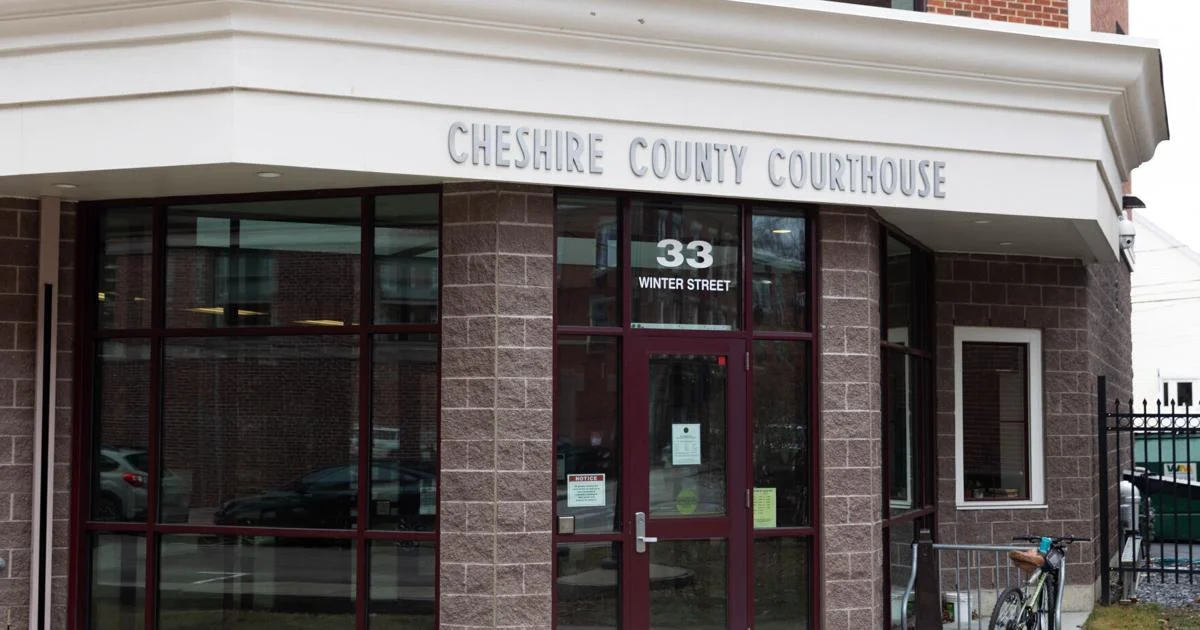By Abigail Ham
Copyright keenesentinel

A yearslong dispute between two prominent local business owners is back in Cheshire County Superior Court this week after the state Supreme Court ordered a new trial in the case.
Jared Goodell is a former radio show host who now owns properties throughout Keene and has launched businesses, including the former Wonder Casino and Bender’s Bar and Grill. Brandie Wells Roof owns Shadow and Soul Emporium & Tea Lounge on Main Street.
The clash between the two Keene natives has its origin in a 2018 dispute over trade names.
In court Monday, Roof and her legal team described Goodell’s actions during the dispute as a campaign of bullying, exploitation and “scorched-earth” litigation. She’s seeking compensation for financial and emotional damages she says Goodell caused her.
Goodell, who is representing himself in the case, told the jury he wanted to focus on facts, not feelings. He argued everything he did was legal and normal in the business world.
A fresh trial begins
The case revolves around three claims: Roof alleges Goodell fraudulently registered two trade names she had been using and claims he caused her emotional harm, both negligently and intentionally.
In a Sentinel article published Aug. 27, 2018, Roof said she was preparing to move her psychic business, Keene Intuition, to a new location on Main Street and getting ready to launch the retail side, called Soul Emporium. At the time, she was preparing to merge them in a new space on Main Street. The next day Goodell registered the trade names “Keene Intuition” and “Soul Emporium” with the N.H. Secretary of State.
Goodell argues buying the trade names was an ordinary and legal use of what he described as a “loophole” and maintained he made no false claims on the state forms, which ask the applicant to provide things like the business address and the type of business.
Attorney Jeremy Eggleton, representing Roof, claimed Goodell was fully aware that she was using the names and fraudulently registered them in order to extort her.
The claims of emotional distress stem from the alleged conduct of Goodell and his attorney between that time and the beginning of the suit.
Two versions of the story
According to Eggleton, Roof contacted an attorney for help formally setting up her businesses in 2018. That attorney found that the trade names she’d been using had already been taken by Goodell.
They got in touch, and Goodell offered to sell her the trade names for $5,000, Eggleton alleged.
Roof declined, Eggleton said. When another Keene business owner whom Roof knew announced she was going into business with Goodell, Roof contacted her with a warning, passing on the story of the trade names, Eggleton said.
When that warning got back to Goodell, he threatened to sue Roof for defamation, Eggleton said. Goodell ultimately filed that lawsuit, and asked Roof for $250,000 to settle it out of court, according to court records.
Goodell described all their exchanges during that time as the normal character of a business dispute, but Roof and her legal team said he went out of his way to manipulate and threaten her.
Goodell’s attorney at the time, Joseph Hoppock, was sanctioned by the N.H. Supreme Court Professional Conduct Committee over his conduct toward Roof. The committee found he had intentionally intimidated Roof in written correspondence and ordered a six-month suspension from practicing law.
Representing Goodell, Hoppock wrote to Roof that “You should be very concerned you will have ‘a lot to lose’ by saying the things you have said about [Hoppock’s client]; we will pursue you until you have nothing left, except assets exempt from judicial execution,” according to Supreme Court records.
“[L]et me be very clear. I will not get into it with you and your ill, immature feelings toward [Hoppock’s client] … which have now landed you in a difficult legal position,” Hoppock wrote, according to the Supreme Court records. “What I will do is sue you for negligently or intentionally (or very recklessly) publishing falsely defamatory statements concerning [the client] to third parties.”
The records do not refer to Roof as the recipient of the emails or Goodell as Hoppock’s client by name, but the same emails were quoted in court Monday by Roof’s attorney.
Hoppock was not reachable Monday for comment. His office line is no longer in service and a phone number listed for him in an online telephone directory did not work.
Roof alleges Goodell’s behavior led to her developing physical and mental health symptoms.
Her attorney described Goodell as a “bully” who used his “position of economic power” to “squat” on her business names and manipulate and threaten her as she worked to grow her small business.
Goodell argued Monday that what she experienced was the normal stress of running a business and going through a lawsuit.
He maintained the symptoms she reported to medical professionals can’t be linked to him.
The backstory
After Goodell sued her for defamation, Roof countersued with the claims that are now before a jury.
Before the case went to trial in January 2023, Goodell dropped his defamation claim, leaving only Roof’s claims. Goodell also dropped his rights to the trade names.
From there, the proceedings got complicated.
In the 2023 trial, a jury decided Goodell wasn’t liable on Roof’s claims. However, the jury determined Goodell’s conduct was “wanton, malicious or oppressive” and awarded Roof $75,000 in enhanced compensatory damages.
However, since the jury had not found Goodell liable on any of Roof’s claims, a judge decided to set aside those damages and sided with Goodell.
Roof appealed the court’s judgment, sending the case to the state Supreme Court in Concord.
In February, the Supreme Court ruled in Roof’s favor, sending the case back to Keene for another trial.
The trial is scheduled to continue this week.



